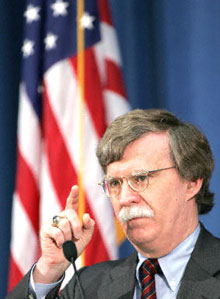------
C-3PO: “Sir, the possibility of successfully navigating an asteroid field is approximately 3,720 to 1!”
Han Solo: “Never tell me the odds!”
- from Star Wars Episode V: The Empire Strikes Back
------
Israel is a country where you are not merely reminded of your mortality – it’s where the potentiality for you to meet your mortality head-on every day is so much stronger than many other civilized places on the face of the planet. Sure, bad things can happen to anyone anywhere, but in Israel it seems the odds are really against you.
It’s like roulette: You can choose the European (the “classic” version), where there is only one “zero” pocket, or the American version, with it’s “double-zero” pocket. Those who prefer to play the game with the odds increased against them choose the American version, the riskier version – that extra, “double-zero” wreaks havoc with the odds for you. Those who know the odds are against them but don’t want to make them any worse stick with the European roulette wheel…better safe than über-sorry.
Those who are suicidal, well...they tend to choose a wholly different kind of roulette: Russian.
Me? After college, young and naïve, I sought out adventure. When I moved to Israel, I basically went for American roulette. Nowadays, I’m reminded of this all the time, whether it’s by just reading the news, or hearing the blast of a suicide bomber as I did in April, or...
------
Han Solo: “You said you wanted to be around when I made a mistake, well, this could be it, sweetheart.”
Princess Leia: “I take it back.”
- The Empire Strikes Back
------
Imagine this scenario:
A man is running to catch a bus in Jerusalem on Sunday morning, having picked up two Yoplait strawberry yogurt cups for breakfast. He had originally planned to walk to the train station to catch the 8:09 to Tel Aviv, but then he saw the number four bus that could get him to the train station much faster, and so he decided to try for it.
This man crosses one crosswalk and, as the bus pulls on ahead of him and he is about to cross another crosswalk to sprint for the bus stop, he hesitates (even though he’s slightly reassured that he’ll catch the bus thanks to the “green man = walk” signal). Suddenly, there’s a roar and a gray vehicular blur (later revealed to be a Mercedes running a red light), the screeching crunch of bus-metal-slamming-into-luxury-car-metal, and the sight of newly shattered glass flying all over the place.
That man who was about to cross the street was me, and thank God I hesitated. Had I been two seconds faster...had I really wanted that bus…
Picture me shivering.
What happened next? Well, I did – slowly – traverse the still supposedly “safe” crosswalk after being momentarily stunned into a shocked stillness, as the Egged bus driver with signature dark-blue shirt and a kippa opened the door and ran around the front of the bus, returning seconds later with an unmistakably grim look on his face as passengers came to the front of the bus to see what had happened.
Pedestrians from all around came running to the scene of the crash, while I slowly stood to the side, trying not to stare at the still form of the driver of the Mercedes, who was slumped over on his side...
Then came the car horns. Honk-honk-honnnnnnnk was the sound I heard from dozens of cars, from the vehicles of who knows how many people who could not have missed the reason for their morning commute being suddenly, unfortunately, delayed.
As I crossed yet another street, the street the bus I was on my way to catch normally passes down, drivers were already jockeying for position around the scene of the wreck, horns a-sounding even as they, like me, couldn’t take their eyes away from the accident.
------
C-3PO: “Excuse me sir, but might I inquire as to what's going on?”
Han Solo: “Why not?”
C-3PO: “Impossible man.”
- The Empire Strikes Back
------
The Mercedes had been violently pushed against a taxi cab waiting at the stoplight, but only the bumper of the taxi (from what I could see) was damaged. The Mercedes, on the other hand, was flattened on one side...it looked like a half-cooked pancake.
The taxi driver was resting his elbow on the doorframe of his vehicle, clutching his forehead with a hand. He didn’t seemed injured, but more struck with disbelief, shock, and probably not a little
relief too – it could have been worse. There were a few people on both sides of the Mercedes by now, calling the emergency services and trying to coax a reaction from the unmoving driver.
As I approached the driver’s side door of the Mercedes and looked in at the driver up close for the first time, I saw droplets of blood on his hand.
I then moved back and to the side, the ongoing sound of car horns mixing with approaching ambulance sirens, and peering in at another angle spent a moment just looking at the guy’s chest to, perhaps quite naively, see if it was moving up and down.
It wasn’t, at least not by my reckoning.
I took heart, though, when a second later his chin seemed to move.
I walked around to the other side of the smashed-up car and, looking again, saw that the driver’s head had now been moved from one side to the other. Whether he had done it himself, or someone had stupidly moved it for him, I’m not sure of. In any case, he still wasn't moving and I was more than a little convinced that walking to the train station was what I should do.
And so, I moved on down the road that the Mercedes would have reached
eventually had its driver not blazed through the intersection like a bat out of hell...and been kissed by a bus.
The car horns, and the sirens, continued.
Of course, I was hardly numb to what I’d just seen, but I was unable to really process it then.
Later, the sound of a screaming toddler sitting two seats in front of me as my train wound its way through the Judean Hills (forcing me to turn up the volume on my iRiver player) didn’t help with the “thinking about it” at all either.
------ C-3PO: “Sir, it's quite possible this asteroid is not entirely stable.”
Han Solo: “Not entirely stable…I'm glad you're here to tell us these things. Chewie! Take the ‘Professor’ in back and plug him into the hyper-drive!”
- The Empire Strikes Back
------
With a few hours behind me, I can tell you that my opinion of pushy, impatient, reckless Israeli drivers (who have almost – but not quite – run me down in the past as they spontaneously created a parking spot for themselves on a sidewalk) has not improved as a result of this. It might not be a factoid you’re familiar with, but car accidents happen more often in Israel than terror attacks.
If the worldwide media broadcast news of Israeli traffic accidents in addition to the many terror attacks which have occurred here, the perception of Israel as a “much-too-much” dangerous place to live would likely deter more tourists than any Hizballah-Lebanon-Israel war or Sbarro pizzeria bombing put together.
And while car accidents happen more often than terror attacks here, that doesn’t make them normal. Car crashes occur all over the world, but that doesn’t make them normal, and just because they do happen doesn’t mean we should just accept them. So, then, what is the normal reaction after one witnesses a really bad crash, one that he could have been so much more negatively affected by? I dunno. I wonder what happened to the driver...
Maybe I was wrong before. Life here isn’t like American roulette or European roulette. Crazy drivers, plus Islamist terror bombings, along with rockets raining down on cities, terror-run government entities next door, and Iran around the block...hell, that’s Russian roulette, sure as shit it is – only it’s a game of Russian roulette masquerading as American roulette.
Yes, the odds are still against us, the players, anywhere. So what of it? While we all know how the game of life ends, Russian roulette is bound to end it a whole lot sooner...unless you pull out of this game and choose a different one, with slightly better odds that might (no guarantees) allow you to play a little longer.
At this moment, I don’t regret one single bit buying that Tel Aviv-to-Newark ticket on Continental Airlines ten days ago...because all I know is that while flying – while life – is always a gamble, the odds right now at this casino suck.
------
Han Solo: “Afraid I was gonna leave without giving you a goodbye kiss?”
Princess Leia: “I'd just as soon kiss a Wookiee.”
Han Solo: “I can arrange that. You could use a good kiss!”
- The Empire Strikes Back
------









